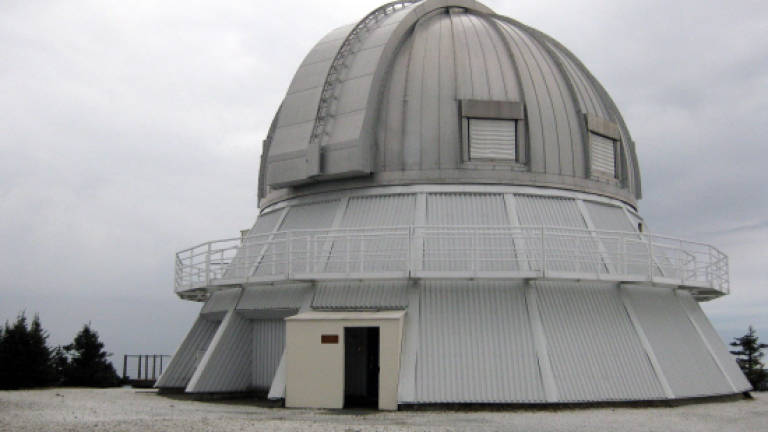Canada turnaround to keep observatory in first dark skies zone open

MONTREAL: Canada vowed on Wednesday to keep open an observatory in eastern North America where the first dark skies reserve was created, hours after its director said budget cuts would force its closure.
"Our government will pay to keep the Observatoire Astronomique du Mont-Mégantic open for the two years," International Development Minister Christian Paradis said in a Twitter message.
The Tory minister's pledge to postpone cutting federal funding for the telescope in his electoral district comes ahead of October elections.
Earlier, Rene Doyon, a professor at the University of Montreal, who is responsible for keeping the observatory up and running, told AFP the observatory was scheduled to close on April 1.
"Our federal financing to operate the observatory is being cut," he said.
The telescope in Quebec province is described by the Royal Astronomical Society of Canada as "the most important observatory of North America's East Coast" because of its sheer size.
Its telescope holds a 1.6 metre mirror and weighs almost 24 tons. The observatory has been used to discover several planetary bodies in distant skies.
Located 250 kilometres (155 miles) east of Montreal in a sparsely populated region at an altitude of 1,100 meters (3,600 feet), it opened in 1978.
Three decades later, the first dark sky reserve -- an area kept free of artificial light pollution in order to facilitate stargazing -- was established around the observatory.
Ottawa has provided Can$500,000 (US$400,000) annually, about half of the observatory's operating costs.
Doyon said Canadian astronomers had made their objections over its closure known to the government but officials did not respond to them.
"It's the only university observatory currently operating in Canada," he said.
Scientists have regularly accused the ruling Tories in recent years of muzzling government scientists to advance a political agenda that ignores research findings.
They held a mock funeral march in 2012 marking the "death of evidence" in Canada, and last year protested the government's closure of science libraries.
The government has rejected the claims, saying it actually boosted support for basic and applied research, while cutting overall spending.
Prime Minister Stephen Harper must defend his parliamentary majority in eight months and hopes to campaign as the first G7 power to post a budgetary surplus 2009 global recession. – AFP